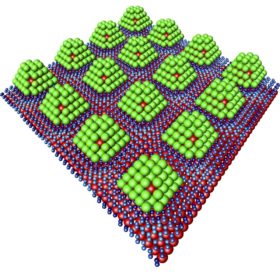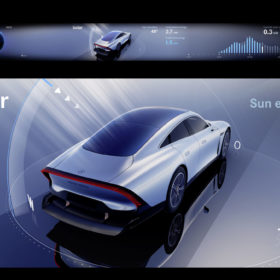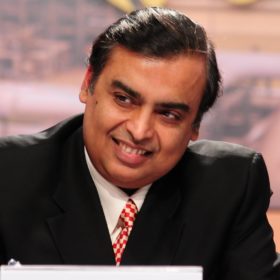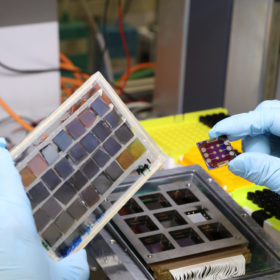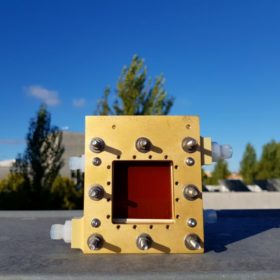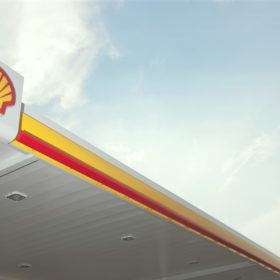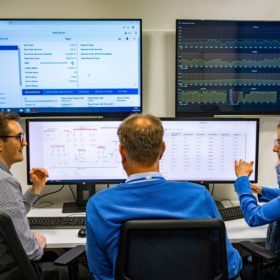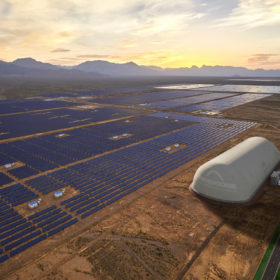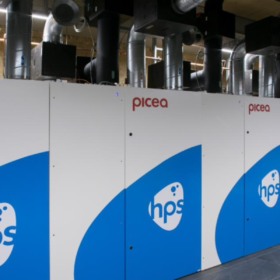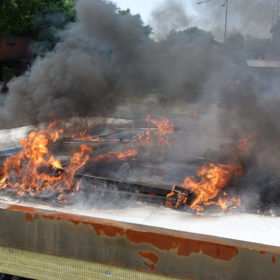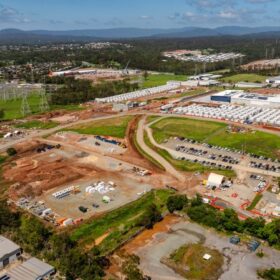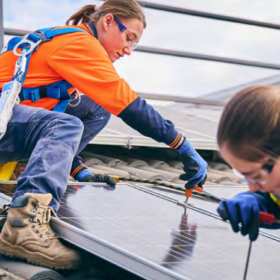Storing hydrogen with ‘nano-chocolates’
German scientists have developed a novel hydrogen storage method that relies on nanostructures – tiny nanoparticles made of the precious metal palladium – instead of high pressure and lower temperatures.
Mercedes’ newest electric car comes with thin-film solar cells on the roof
The solar roof was developed in collaboration with the Fraunhofer Institute for Solar Energy Systems.
Reliance Industries to acquire sodium-ion battery provider Faradion
Reliance Industries said its solar unit will buy UK-based sodium-ion battery technology provider Faradion for GBP100 million (AUD$187 million) including debt, as the Indian conglomerate pushes forward with its ambitious plan to move into the renewable energy industry.
Perovskite solar cell retains 99% of initial efficiency after 1,450 hours
Developed by German researchers, the 20.9%-efficient device was built with an architecture avoiding the use of the ionic dopants or metal oxide nanoparticles that are commonly used to contact the cell, as these can be subject to secondary reactions at higher temperatures.
Solar redox flow cell for residential energy storage
The device was designed by scientists in Portugal to optimise light absorption by the semiconductor and ensure an effective diffusion of redox species while offering minimal electronic and ionic transport resistance. The cell has a 25cm2 photoactive area and relies on ferrocyanide/anthraquinone redox flow chemistry and a nanostructured hematite photoelectrode.
Shell buys solar and storage company Savion from Australia’s Macquarie Green Investment Group
The transaction, for which Shell did not reveal the purchase price, will see the energy company pick up a U.S. project development pipeline which reportedly runs to more than 18 GW of solar generation and energy storage capacity across 26 states.
Grid software solution could more than double network capacity for renewables with no new infrastructure
With Scottish company Smarter Grid Solutions having already seen its software deployed in the U.K., a pilot project in New York State has been a resounding success for a grid solution the NREL has predicted could unlock swathes of network capacity without the need for new power lines.
Storing solar power with compressed carbon dioxide
An Italian company has developed a system that can store energy from wind, solar and grid electricity by compressing and using CO2 without any emissions. The system draws CO2 from an inflatable atmospheric gas holder, stores it, and uses it to produce power again, when demand for stored energy arises.
New solution to store residential, commercial PV electricity as green hydrogen
Germany’s Home Power Solutions has developed a hydrogen storage solution with a capacity of up to 15,000 kWh. The Picea system stores excess electricity from rooftop PV systems in the form of green hydrogen.
New tool to understand component failure rate in PV-related fires
Scientists have developed a new model based on fault tree analysis to evaluate the frequency of fires caused by rooftop PV systems and assess system safety and reliability. They claim that the new tool has the potential to identify fault linkages in systems, highlight failure patterns before they arise, and compare multiple designs for safety.
